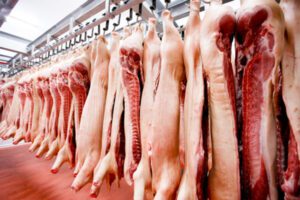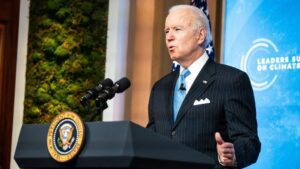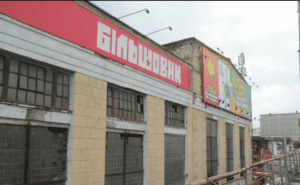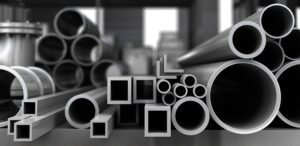
Fierce competition in all industries and the rampant development of information and communication technologies constantly require businesses to look for new means to expand markets.
In August 2021, the Ukrainian Exporters Club launched a new online “Digital expo – Ukrainian Products and Services” Project. The Scope of the Project is to draw the attention of foreign importers, distributors, representatives of trading networks to Ukrainian products, attract them to cooperation and, thus, increase Ukrainian exports.

Digital expo is a web resource where only Ukrainian companies are represented. Each of them has its own web site with a scope of activities description, photos and presentations of products and services and a feedback form to send requests for cooperation. For ease of search, all companies are grouped by main categories, namely:
PRODUCTS:
Metallurgy and Metalworking Production
Energy and Raw Materials Resources
Agriculture and Animal Husbandry
Food Industry
Mechanical Engineering
Vehicles and equipment
Chemicals and Pharmaceuticals Industry
Agriculture
Wood and Furniture
Construction Industry and Public Works
Glass and building materials
Precision equipment
Electrical and electronic equipment
Textiles and clothing
Luxuries
Products for sports and recreation
SERVICES:
Information Technology
Printing and publishing
Transport and related services
Marketing, Advertising and Mass Media
Banking
Finance and Insurance
Business services
Health Care
TOURISM
Digital expo is three sites, each in its own language: in Ukrainian, English and Chinese. This is done in order to improve market coverage and increase the confidence of foreign companies located in different regions of the world.
In fact, “Digital expo – Ukrainian Products and Services” is not a new project of the Ukrainian Exporters Club. It is a modernized, updated and adapted to modern market needs “Inspired By The Best In Ukraine” Project, which was created in 2015.
The previous project was supported by DHL and the EBRD at various stages of its life. It presented Ukrainian products and services at the international exposition IF CHINA in Beijing in 2016 and CIIE in China in 2019.
In the summer of 2021, the electronic catalogues of the Ukrainian Exporters Club became Digital expo.
In the last 3 months (June to August) of 2021, the exhibitors received more than 10,000 requests for cooperation from Malaysia, Poland, Turkey, China, Korea, Baltic States and other countries.
The modern project has become even better. It participates in international online expositions, including: worldexpo, expotobi, food1.com, echemi.com, infobel.com, foodfocus.co.za and others.
“Digital expo – Ukrainian Products and Services” is supported by world and Ukrainian reputable organizations, including: Ministry of Economy of Ukraine, Kyiv Chamber of Commerce and Industry, Entrepreneurship And Export Promotion Office, Euromonitor International and Others. The general media partner of the exposition is the Interfax-Ukraine News Agency.
You can learn more about the “Digital expo – Ukrainian Products and Services” Project and apply for participation at the link: https://inspiredbythebestofukraine.ticketforevent.com/ru/home/40010/

Ukrainian importers in January-August fully used quotas for duty-free import of pork from the European Union, further import of chilled pork will be subject to a 12% duty, and frozen pork – 10%, this was reported on the website of the Pig Breeders of Ukraine association. “As of September 1, some 20,000 tonnes of chilled and frozen pork from the EU countries were brought to Ukraine. This corresponds to the quota for duty-free supply of pork from the European Union countries established under the economic part of the Association Agreement. Since these limits have been used this year, each next kilogram of European chilled pork will cost importers 12% more due to the duty, and frozen pork meat will rise in price by 10%,” the organization said.
According to the association, there has been some recovery in import activity this year, which confirms the use of the pork import quota in August, while in previous years the import quota was used in November-December.
It clarified that Ukrainian importers have similar agreements on duty-free supplies of up to 14,400 tonnes of pork from Canada (the quota was used by 9%) and up to 1,700 tonnes from the UK (no deliveries from this country were made in 2021).
“If the import of raw meat from these countries becomes economically attractive for the importer, the supply of frozen pork is unlikely to have a significant impact on the domestic pork market. In addition, the expected changes in exchange rates in the fall will also increase the entry barrier for imported raw materials,” the association concluded.

United States President Joseph Biden hopes to visit Ukraine again in the future.
Biden himself made the relevant statement on Wednesday, during a meeting with Ukrainian President Volodymyr Zelensky, according to the journalist of the U.S. edition of CBSNews Ed O’Keefe.
“U.S. President Joe Biden meets with Ukraine’s President Volodymyr Zelensky. Biden says the United States is ‘firmly committed’ to Ukrainian sovereignty ‘in the race of Russian aggression.’ He added later he hopes to visit Ukraine again in the future,” the journalist said on Twitter.
As reported, Ukrainian Foreign Minister Dmytro Kuleba said that diplomats are working on preparations for the visit of President of the United States Joseph Biden to Ukraine.

JSC First Kyiv Machine-Building Plant (the former Bilshovyk plant) will be put up for a privatization auction with a starting price of UAH 1.39 billion, which was approved by the Cabinet of Ministers on Wednesday, Dmytro Sennychenko, head of the State Property Fund (SPF) of Ukraine, said. “Today, the Cabinet of Ministers of Ukraine has accepted the terms of its privatization. As they say, now a small [not so] challenge remains to find, together with a representative of Big-4, KPMG Ukraine, investors for this asset,” he said on Facebook on Wednesday evening.
According to Sennychenko, the commission will determine the date of the auction in the near future.
“The experience of previous competitions held by the SPF allows us to confidently predict that we will see a significantly larger number on the final scoreboard,” the SPF head said.
He recalled that the plant was established in 1881, when a Swiss entrepreneur bought about 4.4 hectares of land on Shuliavka in Kyiv, and six months later a new enterprise appeared here – Kyiv iron cast and mechanical plant.
“Over the next more than a hundred years, the plant changed the scale of production, profile, name, and experienced stunning transformations – from an unconditional flagship of the industry to an abandoned technically obsolete site,” Sennychenko wrote, adding that perhaps the enterprise will again interest some Swiss investor.
As reported, in accordance with the privatization conditions approved by the Cabinet of Ministers, the new owner of the enterprise must fulfill a number of social and economic conditions, in particular, the payment of wage arrears and single social security tax, the implementation of the current collective agreement and the prevention of dismissal within a certain period.

International IT company Ciklum Group Limited (one of the largest software developers in Ukraine) announced the acquisition of Czech software developer CN Group from Genesis Capital, one of the Central European private equity funds.
The deal will strengthen Ciklum’s market position in Central and Eastern Europe, as well as Germany, Austria and Switzerland, Ciklum said on Wednesday.
The amount of the deal was not disclosed.
As part of the agreement, Genesis Capital, which invested in CN Group in 2019, sold 100% of its shares in CN Group.
CN Group is headquartered in Prague, with five nearshore delivery locations in Central Europe. The company’s 360 digital technology specialists will become a powerful addition to the Ciklum team of more than 3,500 engineers, designers, product managers and data scientists.
“The combination of CN Group and Ciklum will build on each company’s long history of delivering high-impact products and platforms to clients across Europe and North America while opening new fields of opportunity for both. With delivery across the Czech Republic, Slovakia, Ukraine, Poland, Romania, and Spain, supported by a best-in-class employee culture and learning environment for engineering talent, the united companies will represent one of the largest digital transformation providers in the CEE region with global reach,” the report said.
CN Group has been delivering software engineering, IT consulting and mechanical design engineering for over 27 years. The company serves 62 international customers, including Procter & Gamble, Strabag, TF Bank, Bunte.de and FlatexDEGIRO, across more than seven markets.
Ciklum is a global IT company established in 2002 that provides software development and testing services, is engaged in innovative research and development (R&D), work with data sets (Big Data) and engineering consulting. It has offices in several countries, including Ukraine. In Ukraine, Ciklum is one of the largest IT companies, employing over 2,600 people.

Ukrainian metallurgical enterprises in January-August this year increased production of general rolled products, according to recent data, by 5.9% compared to the same period last year, to 12.999 million tonnes.
According to the Ukrmetalurgprom association on Thursday, over the eight months steel production increased by 6.7%, to 14.596 million tonnes, and cast iron – by 7%, to 14.503 million tonnes.
In August, 1.673 million tonnes of rolled products, 1.864 million tonnes of steel, and 1.852 million tonnes of cast iron were produced, while in the previous month – 1.723 million tonnes of rolled products, 1.876 million tonnes of steel, and 1.857 million tonnes of cast iron.